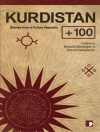Ten years have passed since the fall of Troy. The surviving Greek warriors who destroyed that city have returned home. All except Odysseus, whose wife, Penelope, and son, Telemachus, await him. Claiming that Odysseus is dead, a host of suitors have taken up residence in his home, eating up his wealth and trying to persuade Penelope to marry one of them. Penelope steadfastly refuses.
Odysseus, in fact, is alive. Having spent seven years as a captive of the nymph Calypso, the gods finally take pity on him and persuade her to set him free. When he resumes his journey home, the sea god Poseidon sends a great storm to destroy his raft. Exhausted and near death, Odysseus and his men wash up on an island shore. They are delayed by Polyphemus the Cyclops, the Lotus-eaters, the Sirens, the sorceress Circe, and other strange creatures.
Set in a time that was ancient even when Homer composed it almost 2, 800 years ago,
The Odyssey reveals a universal order where gods intercede directly and sometimes capriciously in the destinies of men, where heroes are as deceitful as they are brave, and where a sea voyage becomes a test of human ingenuity and courage in the face of helplessness.
عن المؤلف
Homer was an epic poet believed to have lived in Greece around the 8th century B.C.E. He is credited with authorship of the two founding works of Western Literature:
The Iliad and
The Odyssey, though both works existed in oral form before they were written down.












